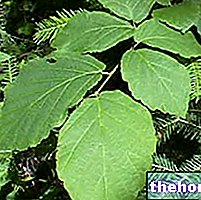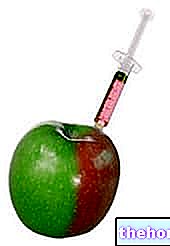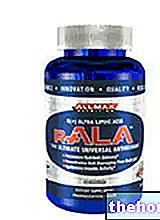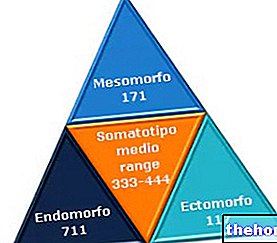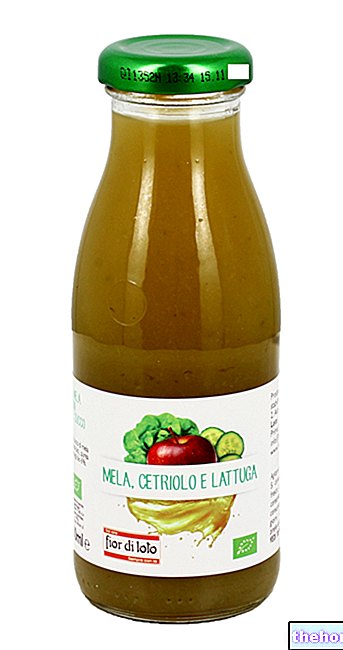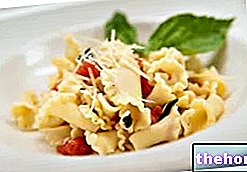Today we will talk about Goji berries, a food with PHYTOTHERAPY and NUTRACEUTICAL properties.
Goji berries are the fruits of the LYCIUM BARBARUM shrub, a plant native to northern China that is part of the Solanaceae.
In reality, there are several species of Lycium and it is not uncommon that their fruits are also marketed under the name of Goji berries.
In particular, the CHINENSE species, native to southern China, is very similar to the BARBARUM, even if it has shorter, wider leaves and produces more bitter berries than the classic Goji.
However, what must be CLEAR is that all the beneficial properties attributed to Goji berries have been observed on the fruits of BARBARUM and not in those of CHINENSIS.
Goji berries are oval in shape and small, 1 or 2 centimeters, and when fully ripe, from green, they take on a bright red color. They have a sweet taste and an aftertaste that vaguely recalls that of blueberry.
These are real foods that are commonly included in oriental cuisine and, by virtue of certain nutritional characteristics that we will see later, they also represent a sort of food supplement.
Goji berries can be eaten fresh, dried and rehydrated, powdered in capsules or diluted in water, and in the form of fruit juice.
Recently, Goji berries have become extremely important in the food supplements and herbal medicine sector.
The great collective interest is mainly due to the nutritional richness of these fruits and the exclusivity of certain molecules contained in them.
The hypothetical strengths of Goji berries are:
- Strengthening of the immune defenses
- Multiple antioxidant function
- Tonic
- Promotes mental focus
- Antiallergic
- Protects visual motility
- Optimize bowel function
- Balances the pH of the blood.
Numerous experimental protocols have been started but, for the moment, the most explanatory ones are "in vitro", ie in isolated cells observed under the microscope. As far as "live" experimentation is concerned, Goji berries have been shown to simply increase the "perception" of general psycho-physical well-being.
As we have already said, the various nutraceutical and phytotherapeutic functions of Goji berries are attributable to their rich nutritional content.
First of all, remember that these are low-calorie fruits, with a low glycemic index and rich in fiber, which is why their intake should NOT negatively affect even the low-calorie diet.
IN ADDITION to the richness in mineral salts, among which the calcium, potassium, iron and SELENIUM content stands out, the vitamin concentrations of vit. B2, pro-vitamin A and vitamin C.
There are also some essential amino acids, essential fats and anti-cholesterol-lowering phytosterols.
However, what distinguishes Goji berries from all other herbal products, nutraceuticals and, indeed, from all other foods, is the presence of polysaccharides that support the immune system.
These complex carbohydrates, also called BARBARUM POLYSACCHARIDES, activate the immune system and improve the recognition of diseased or pathogenic cells.
In vitro, the Goji berry polysaccharides have been shown to have antioxidant, antitumor, neuro-protective, radioprotective, antidiabetic, hepatoprotective and anti-osteoporotic functions.
On the other hand, it is good to remember that Goji berries can have side effects; they will be better treated in a separate film but for informative correctness I will summarize them briefly.
First of all, some people do NOT seem to tolerate the intake of these fruits and tend to experience nausea and vomiting.
Secondly, the active ingredients of the berries can conflict with the metabolism of certain drugs and therefore are not useful in the treatment of the diseases in question; two examples are diabetes and hypertension.
It is not recommended for use during pregnancy and breastfeeding, since the richness in BETAINE and SELENIUM could be subject to adverse reactions.
I conclude this brief presentation by recalling that the EUROPEAN COMMISSION FOR FOOD SAFETY has defined the consumption of Lycium barbarum berries as a food ingredient SAFE and that, in Italy, the MINISTRY OF HEALTH mentions Goji in the list of plant extracts that can be used as a supplement " antioxidant "(Legislative Decree 21 May 2004, n. 169).
I look forward to seeing you with the next video that will deal specifically with the BENEFICIAL AND SIDE EFFECTS OF GOJI BERRIES.










